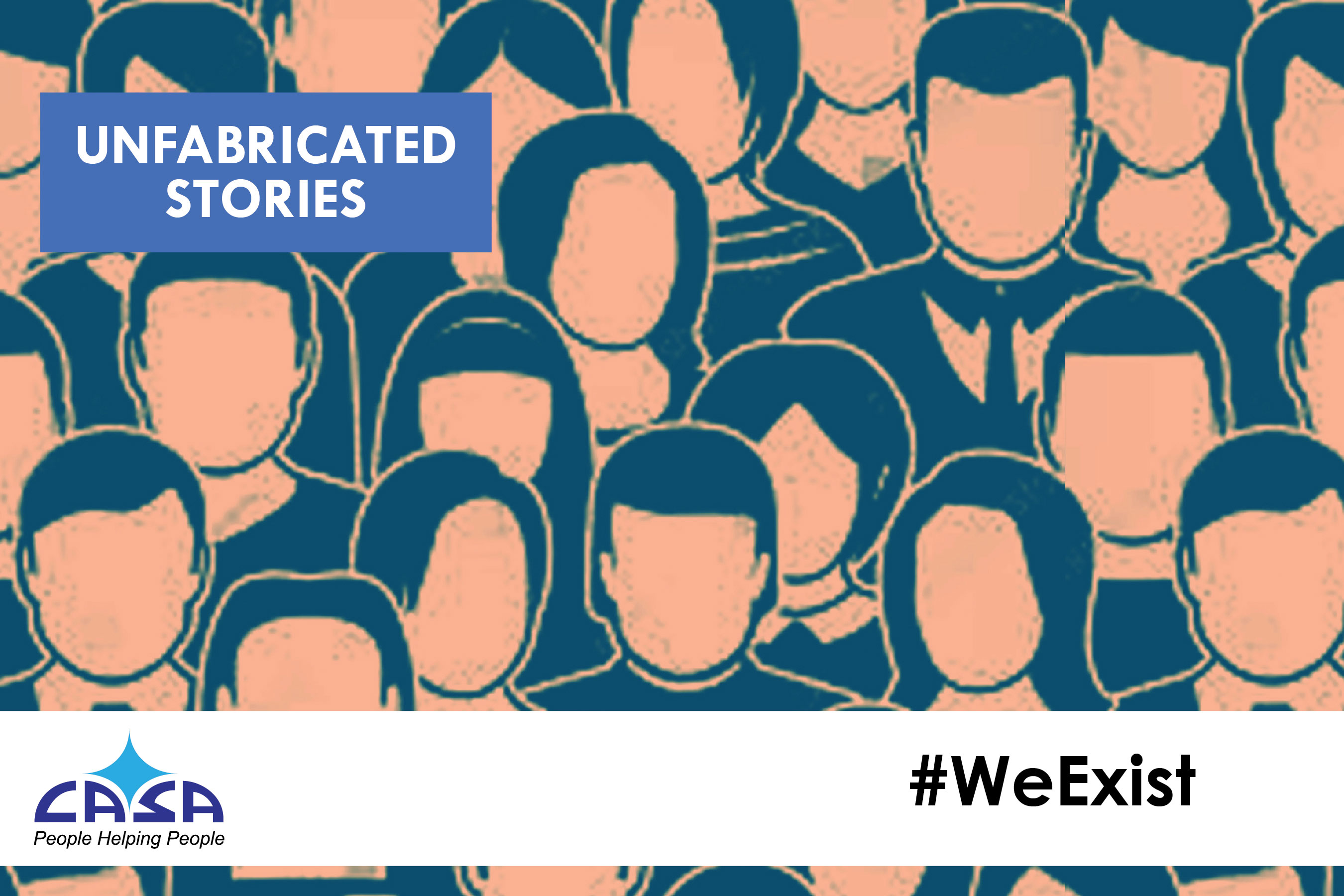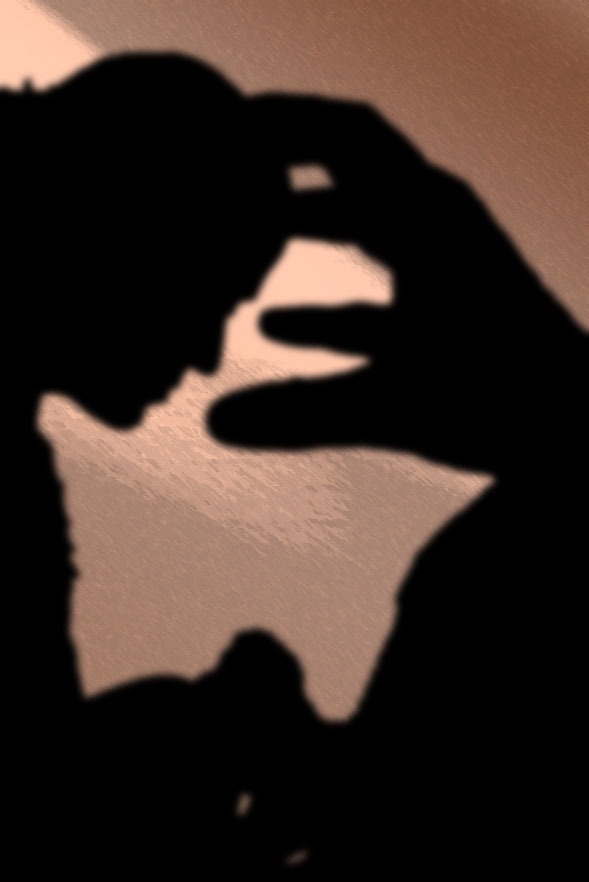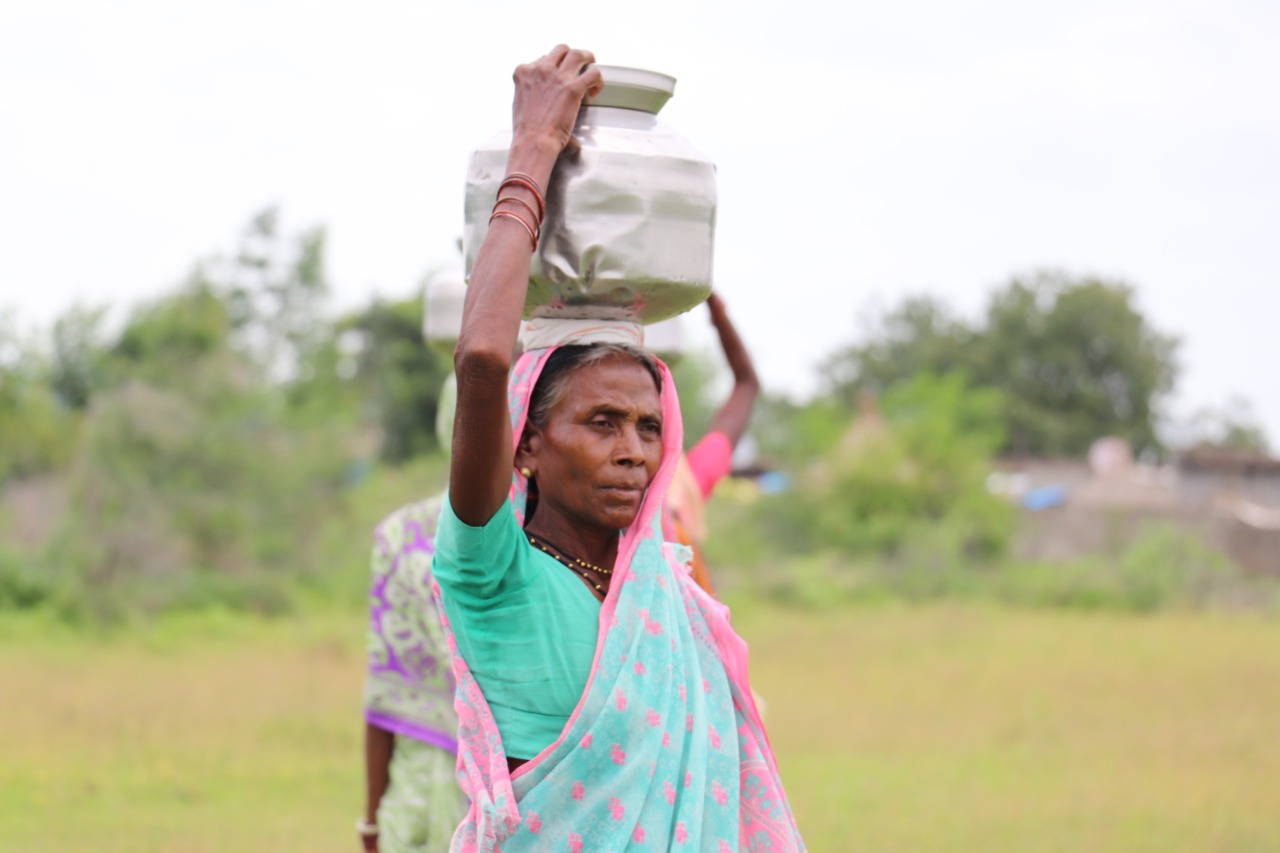- home

- Publication & Resources

- Blog
- HUMAN TRAFFICKING: A SCOURGE TO HUMANITY

HUMAN TRAFFICKING: A SCOURGE TO HUMANITY
Almost after six years of repressing her emotional pain, Sagarika shared her story of sufferance as a human trafficking survivor. Currently working as a volunteer under CASA’s IREACH Humanitarian Response project in Sundarbans, her journey of terror, trauma and abuse to an independent woman comes off as an exemplar in the present times. It was just a matter of chance that Sagarika narrowly escaped from the trap of trafficking and resumed her life with dignity after wading through dark waters.
Sagarika was 12 years old when she had travelled along with her family, to attend her ‘Choto mami’s (aunt) wedding in a nearby village named Pakuria, in Hingalganj block, North 24 Parganas, West Bengal. On the eve of the wedding, her newlywed aunt took Sagarika to her abode, where she fell unconscious. She later discovered that the toothpaste offered by her aunt had been intoxicated with a certain drug.
“I fell unconscious within a few minutes and I woke up in an unknown vehicle with a few strangers around me as well as my aunt, who was trying to put me back to sleep, for me to remain oblivious to where I was being taken”.
Sagarika reached a small locality of Bhojanpur in Delhi where she was taken to a downtown area. “They took me to a flat, where I was kept alone in a room and I could hear screams of other girls from the next room”.
Sagarika could sense the intensity of the strange situation she had crossed paths with. She was sold to a pimp named ‘Raju’, by her aunt. They escorted her to Coochbehar in North Bengal in order to escape the raids that were regularly conducted by Delhi Police in brothels and hotels.
“I was sold to the head of the red-light area in Coochbehar, to a woman named Arati Das, who was running the entire racket in the area. There, I was given a capsule that had to be taken every day”.
Every time Sagarika swallowed the pill, she felt jittery, with her heart thumping rapidly against her chest, she would suddenly fall asleep. “I later found out from other girls in the brothel that because I was so young, I was given hormone growth pills in order to look older than my actual age so that I can satisfy the customer”.
As she was the youngest among all, she was kept in a separate room until she developed into a fully grown woman, to entertain the customer. “A girl tried to help me from my situation but failed, as we were thoroughly beaten for building a friendship and tortured for getting close”.
Sagarika was subjected to mental, emotional and physical torture every day. Her worst fears came to life when she overheard a dealer discussing about selling her in another part of India. “One night, I overheard that I was going to be sold in the northern part of the country, in the red-light area of Kashmir, and that the deal was in lakhs. The same night, a girl managed to run from the brothel and escaped”.
Sagarika saw a ray of hope when her father came to rescue her and she was liberated from the chains of trafficking. She later found out that the girl, who had escaped, managed to contact her father who was a rickshaw-puller in the outskirts of Kolkata. On finding out the whereabouts of his daughter, he immediately reached the Coochbehar police station and the brothel where Sagarika was held captive, was raided with the help of a humanitarian organisation named ‘Jabala’ that works to eradicate trafficking in West Bengal.

Human Trafficking: A scourge to Humanity
“A policeman shouted my name and I went running as I saw my father. We both shed tears of joy and relief. Many girls were rescued along with me and taken to a government run home at Sahebganj in Coochbehar”.
After six months of trial, the traffickers were arrested and Sagarika’s father was called for his ID verification to ensure that his daughter would never fall in the trap of the same racket again. “My father struggled to bring me back as he had to bribe the police and satisfy their demands, which led us to fall in debt. I came to Dakshineswar where my father pulls a rickshaw and my mother works as house-help”.
After returning, Sagarika had the opportunity to complete her education and appeared for her board examinations. She married her childhood friend at the age of 15, whom she had known before falling in the trap of trafficking.
“I now have an 18-month-old daughter. I live with my husband in a rented house as my in-laws didn’t treat me well”.
Sagarika is presently 18 and is working with CASA’s IREACH Humanitarian Response project under Cyclone Amphan Recovery work as a volunteer for ‘Public Health Promotion’ in Sundarbans. “I came to know about CASA’s work in my region as they were helping trafficked women under their project. I received financial support and later joined the organisation as a volunteer, in order to do my bit for humanity”.
Human trafficking has been a major scourge to humanity, entrapping humans in the chains of forced sexual slavery. India was termed as ‘World’s most dangerous for Women’ in a survey conducted by Thomson Reuters Foundation in 2018. Despite the Indian Government’s efforts to remove this society evil, the trafficking industry has tainted lives across all corners of the country.
According to the main international anti-trafficking law, known as the Palermo Protocol, human trafficking is defined as “the recruitment, transportation, transfer, harbouring or receipt of persons, by means of the threat or use of force or other forms of coercion, of abduction, of fraud, of deception, of the abuse of power or of a position of vulnerability or of the giving or receiving of payments or benefits to achieve the consent of a person having control over another person, for the purpose of exploitation.”
CASA, since its inception in 1947, has worked to serve humanity, supporting victims of violence across all corners of India. We have always given provisions and support to many victims like Sagarika, who have been subjected to certain form of violence. Our efforts remain persistent in our attempts to serve our purpose.
(The real name & identity of the persons in this story has been changed)
-Written by Pankhuri, Communication Associate
 Previous Blog Post The Tears of Emotion and Pain- A Reunion and The Struggle Behind
Previous Blog Post The Tears of Emotion and Pain- A Reunion and The Struggle Behind The Woman of the Family
The Woman of the FamilyFeatured Post

International Women’s Day -2021
8 Mar 2021
International Women’s Day -2021 is very special for CASA. It’s a delight to announce, CASA with the support of the Church of Sweden has launched an exclusive Gender Desk to emphasise the importance of Gender Justice work. CASA has been working for Gender Justice all throughout and across our constituencies in all these years. Gender Desk comes to add vigour […]

Overcoming Gender and Poverty Barriers
Poverty has been an inevitable problem in India since the beginning of time. The increasing problems of poverty caused by overpopulation and the unequal distribution of wealth among the people have led to a huge impact on the life of millions in the rural as well as the urban area. A person has to acquire […]

Impact of Climate Change on Women
16 Jan 2021
Climate change is a prevailing problem globally whose hazardous repercussions extend beyond the environment. Shrinking glaciers, extinction of plants and animal species, mutation, rise in the Earth’s average temperature and triggered seasonal fluctuations, are some of the impacts of climate change that have already grabbed the headline. Certain early predictions pertaining to climate changes had […]



